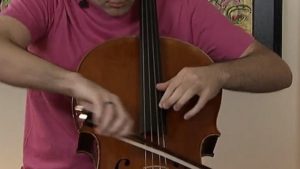How to Practice Solos Like a Professional
When you pick up your instrument, you immediately assume the position of someone who is able to communicate a musical message, one that conveys emotion and feeling. It’s a large responsibility on some level, whereas your performance may affect your listeners with quite an impact on their personal lives. The music from your instrument alone can literally change the course of a person’s life by affecting their thought patterns.

This artistic responsibility requires that you always perform at your best, and communicate the message of the composer exactly as it should be, with mild interpretation. But, when it comes down to that moment when you pick up your instrument and practice for the next hour or two, how do you make sure that no time is wasted and is being used effectively?
A solo puts most of the performance pressure on you. Every musician who has ever performed in front of an audience knows this – professional soloists especially. How does one actually practice like a professional though? Is there a secret method?
It turns out, the basics matter a bit – scales, arpeggios, chords, and knowing music theory all come into play. Once you know the outline of music well enough that it’s second nature, then you should focus on honing special tricks.
No matter what instrument you play, you produce a tone. If your piano is struck too hard, the hammer inside the body of the piano creates a harder sound than if struck softly or if the dampening pedal is not depressed. A violinist who does not bow their strings at the right angle, or does not apply the proper amount of pressure, can drastically alter not only the sound of the music but can even affect the next note played. A trumpet player who doesn’t put enough air through the lead pipe, or have a firm seal on the mouthpiece with their embouchure, can create an undesirable sound.

Getting the basics right is always the focus of the professional soloist. One might think those famous musicians such as Wynton Marsalis, Joshua Bell, or Yo-Yo Ma don’t think about how they’re holding their instruments, but they themselves have always pushed the fact that to be a master musician, you must first master the basics.
Practicing like a professional, other than understanding that you must stay diligent about the basics, requires the proper amount of rest between practice. With individuals who perform all over the country, it’s extremely important to pace yourself while practicing. If you burn yourself out, no one else is going to cover the part for you – you’re the star!
Lastly, pay attention to the smallest details about the pieces you are performing. This is what separates the amateur from the master: the ability to keep in mind all of the smallest elements that you’ve practiced.
To practice like a professional, you have to do the things when you’re practicing that professionals would do. There is no shortcut to greatness!
